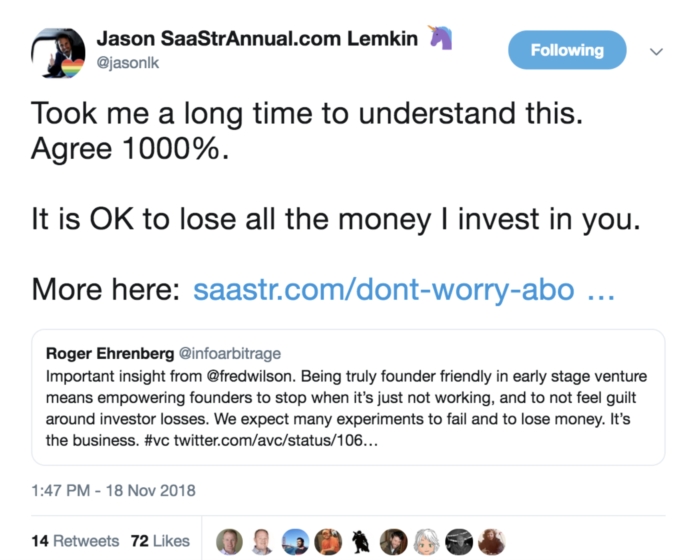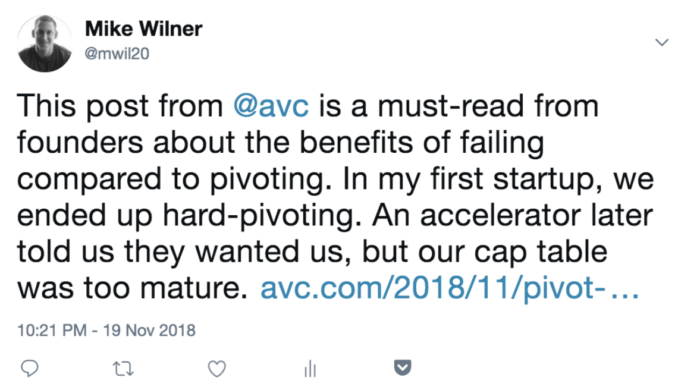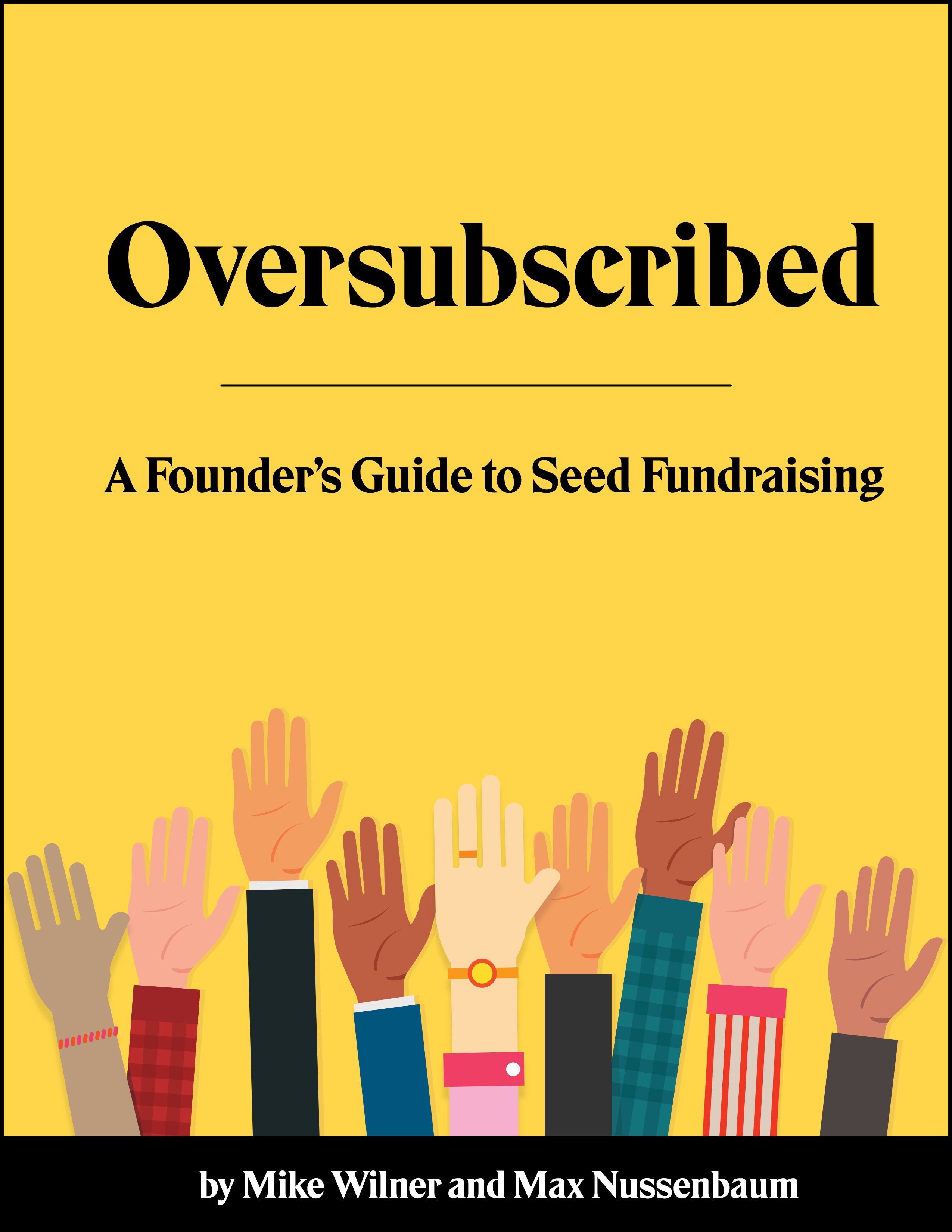Oversubscribed Weekly #3
November 20, 2018It’s our third edition of the Oversubscribed Weekly! This week, Fred Wilson (legendary Partner of Union Square Ventures) wrote an incredibly important post for founders about pivoting vs. failing, so we’re going to highlight it along with tweets about the article from others.
In this issue, we also have particularly poignant insights from Brian Yormak, a Partner at Story Ventures, about how he evaluates founders at the seed stage (the Q&A is a bit longer than usual, but worth it). Onward!
Tweets worth reading
Fred Wilson’s post, Pivot or Fail, highlights something that we’ve experienced first-hand: founders overestimate how disappointed their investors will be if they fail.
It also highlights why failing can be better than a hard-pivot – failing allows you to “rip up” the cap table. Failing and/or pivoting are likely some of the most emotionally grueling things you can consider as a founder, and it’s about time an influential investor broke the ice and weighed in on the sensitive issue.
Your cap table has an impact on your ability to fundraise, it’s worth considering when failing and starting from scratch is a better idea than pivoting. Here are some interesting responses from folks about the issue.

Jason Lemkin, the founder of Echosign and super-active seed investor, puts it pretty simply, saying it’s ok to lose the money he invests. He expands in his own article on the topic, he explains that as a founder, fear of losing investors’ money helped drive him to getting a good outcome (selling Echosign). However, as an investor, he’s realized how fear of losing investors’ money is too much of a burden and detrimental. Notably:
- “True seed investors know many of their investments fail, and they make (hopefully) calculated bets.”
- “Post-Initial Traction, caring too much about losing your investors’ money will make you too risk-averse.”

This is Mike again. Mike ended up gradually hard-pivoting his company (Compass) from a freelance marketplace to a fintech company for freelancers (Sail) after already having raised over $850K in seed capital. While Sail had a lot of promise as a pre-seed idea, when he got to the final round of an accelerator, they were rejected because of the baggage of their cap table. This baggage ultimately limited Mike’s fundraising options, as the fragmented ownership of the company from previous seed round(s) was not worth the risk for future investors.
Q&A with a VC
This week we interviewed Brian Yormak from Story Ventures.
Q: What traits do you look for in a founder that give you conviction in investing in them? What signals do you look for that help you evaluate if the founders you’re meeting have these traits?
A: Given that I focus on seed stage investing (high-risk within a risky asset class), I often try to identify characteristics that I believe serve as the best mitigants to failure (vs traits that may be present in high-upside individuals). The four pillars I spend the most time looking for are industry expertise, strong communication skills, detail orientation, and self-awareness.
Industry experience: I’ve had the chance to work with first-time entrepreneurs and serial entrepreneurs. Each brings something different to the table but one thing I notice time and time again is that you don’t know what you don’t know. There is no replacement for experience so all things being equal, I find it more comfortable to invest in people that have experience relevant to what they are building.
Strong communication skills: This is likely something I hold in higher regard than most investors. As you can tell by the name of our fund, Story Ventures, I’m very focused on how people are able to tell a narrative. At the start of a business, you are selling people on an idea. If you can do this well, you can hire great people, find great initial customers, bring together great investors, etc. If done well, the ability to communicate can be the single most important thing for a businesses success.
Detail orientation: There is so much nuance to a business. Many entrepreneurs are great thinkers but it is something completely different to prepare a business for long-term success. Whether it’s health insurance, taxes, legal structure, etc. so much infrastructure needs to be put in place to create seamless long-term value. People that are detail oriented often handle this well or surround themselves with people that can understand the intricacies of a startup.
Self-awareness: It’s important to know your strengths and weaknesses. Nobody can do everything and the people that are able to identify how to find team members that complement their skills seems to be more successful on the whole.
Most of the signaling we look for comes through the diligence process. We will often loop in an advisor to have an in-depth conversation about the industry to determine industry expertise. We will watch carefully how the entrepreneur interacts with us and others both in person and digitally to get a sense of communication style. Detail orientation is a bit more abstract but we will narrow in on what we view as most important to the success of the business (e.g., product quality, hiring, etc.) and see how the entrepreneur thinks about that part, among other things. Self-awareness is also difficult. I don’t think there’s a silver bullet here but we will often ask more philosophical questions to get a sense of an individuals drivers/morals.
Enjoy this? Get Oversubscribed in your inbox every Thursday.

